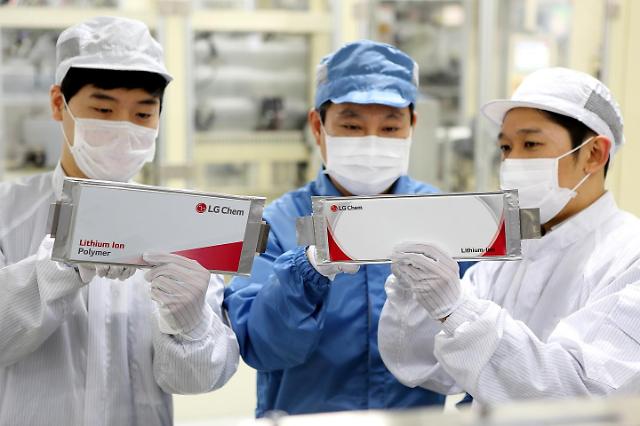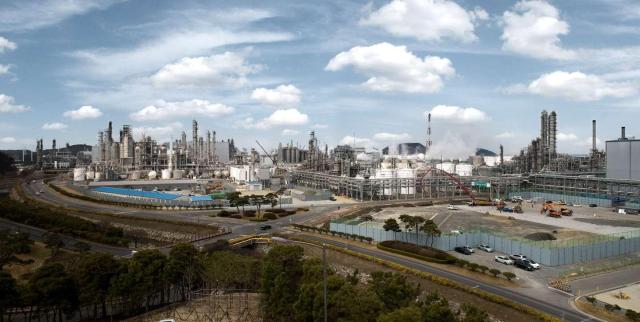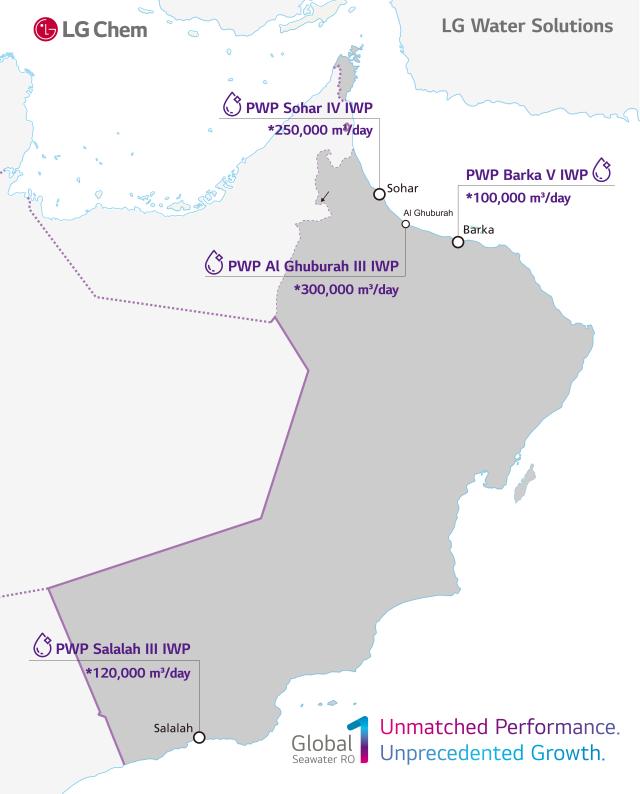
[Courtesy of LG Chem]
LG Chem said Tuesday that it would receive anode materials from Umicore's plants in China and South Korea from 2020. LG Chem's plant in Poland would receive more than half of the contract volume, beginning in 2021. The South Korean company has expanded production at LG Chem Wroclaw Energy, a Polish subsidiary.
"We secured a large amount of anodes, a key material for batteries, in line with explosive growth in the European electric vehicle market," said Kim Jong-hyun, head of LG Chem's battery business division.
A majority of lithium-ion batteries use graphite powder as an anode material. Graphite materials are either synthetically-produced or mined from the ground, then heavily processed before being baked onto a copper foil to serve as anodes.
LG Chem, which has battery plants in South Korea, Europe, China and North America, has tried to establish a stable supply network of raw materials. The company signed a deal with Huayou Cobalt, a major cobalt supplier in China, in April 2018, to jointly produce key materials for lithium-ion batteries, followed by a five-year contract with Nemaska Lithium of Canada to receive 7,000 tons of lithium hydroxide per year.
In August this year, LG Chem signed a three-year contract to receive lithium hydroxide from the Australian subsidiary of Tianqi Lithium, the top lithium producer in China.
Kim said LG Chem would form a long-term partnership with Umicore by working together on research and cooperation in battery recycling. Battery makers are developing technologies to recycle battery packs for electric vehicles as lithium-ion battery-powered cars are just now coming to the mass market worldwide.
Electric vehicle batteries use chemical energy stored in rechargeable battery packs. They reach an end of life for replacement. Valuable materials in battery packs such as aluminum, cobalt, nickel, lithium and other types of metals can be recovered and recycled.
Copyright ⓒ Aju Press All rights reserved.




View more comments